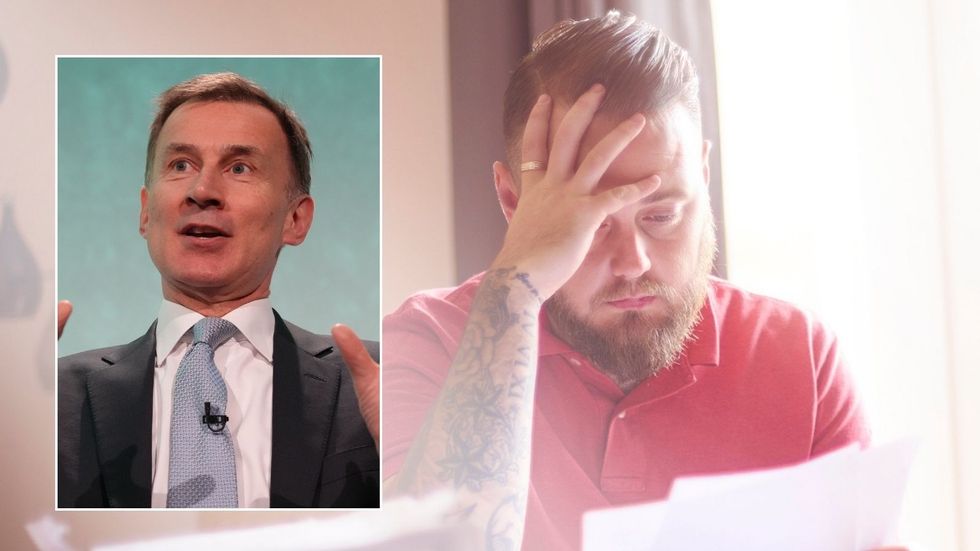More families are finding themselves being dragged into the inheritance tax net due to fiscal drag
Don't Miss
Most Read
Trending on GB News
Chancellor Jeremy Hunt is under “pressure” to introduce a cut to inheritance tax (IHT) in next month’s Spring Budget.
Experts are urging the Government to reverse its decision to freeze the levy’s allowance until April 2028 due to the impact of fiscal drag.
This is the term used to describe when households end up paying more to HM Revenue and Customs (HMRC) due to inflation and wages rising but tax thresholds remaining the same.
IHT receipts for April 2023 to January 2024 came to £6.3billion, which is £0.4billion higher than the same period last year, according to Government figures.
Do you have a money story you’d like to share? Get in touch by emailing money@gbnews.uk.

More households are finding themselves being dragged into paying inheritance tax
GETTY
Based on these statistics, more families in the UK are finding themselves falling foul of the controversial tax.
Inheritance tax is charged on the estates of those who have passed away, which includes their money, possessions and property.
It is usually levied at 40 per cent on estates which are worth more than the £325,000 threshold, however if the deceased leaves 10 per cent or more to charity this amount is slashed to 36 per cent and there are ways people may be able to increase their threshold.
Around one in 25 families in the UK, the equivalent of four per cent, are estimated to have to pay inheritance tax.
Due to house prices rising while allowances remain frozen, households are being dragged into paying IHT on estates.
Earlier this week, HMRC reported total tax bills for April 2023 to January 2024 came to a staggering £695.1billion.
This is £33.6billion higher than the same period in 2022 and early 2023 which experts believe could be an incentive for Mr Hunt to introduce tax cuts.
Edward Grant, the director of Tax and Technical Services at St. James's Place, suggested an inheritance tax cut could be on the cards.
LATEST DEVELOPMENTS:
 Inheritance tax can be reduced by giving gifts - but rules do apply GETTY
Inheritance tax can be reduced by giving gifts - but rules do apply GETTYHe said: “Income tax self-assessment receipts are £0.9billion lower than the same period last year.
“However, monthly income tax, NICs and CGT receipts continue to show year on year tax rises, giving the Chancellor potential headroom for future tax cuts in the Spring Budget March 6, 2024.
“In the long term, we continue to see the impact on receipts from the freezing of IHT thresholds at 2020 /21 levels.
“This continues to keep the pressure on for the Chancellor looking for votes to cut IHT.”
Last month, the Government cut the rate of National Insurance contributions from 12 per cent to 10 per cent with Prime Minister Rishi Sunak floating further tax cuts later in the year.









